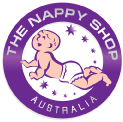Add description, images, menus and links to your mega menu
A column with no settings can be used as a spacer
Link to your collections, sales and even external links
Add up to five columns
Add description, images, menus and links to your mega menu
A column with no settings can be used as a spacer
Link to your collections, sales and even external links
Add up to five columns
How to embrace the play date
February 20, 2025 2 min read

Whether you know it yet or not, play dates are going to be a big part of your life until your child is old enough (and you are emotionally ready) to let your kid visit their friends solo. Play dates are a roll of the dice, but with a little preparation (and a strong exit plan), you can not only survive but actually make them a positive experience for both you and your child.
Make the Right Match
Not all play dates are created equal. Some kids play beautifully together, while others create more of a ‘fight club’ vibe. Here’s how to set yourself up for success:
Match energy levels. A high-energy kid paired with a quiet, cautious child can be a recipe for frustration. Try to pair children with similar play styles.
Consider potential play issues. If one child loves building block towers and the other loves knocking them down, it’s going to be a long afternoon.
Know the parents. This is crucial, if you’re stuck making small talk for two hours, it helps if you actually like the other parent.
Lay the Ground Work
Before the play date starts, give your child a quick rundown of the rules:
“We share toys with our friends.”
“If we feel upset, we use our words, not our hands.”
“No, we can’t keep the other child’s favourite toy just because we love it now.”
It also helps to get the low down on the other parent's thoughts on things like screen time, snack foods, and house rules. Knowing these important details can prevent awkward moments, like when your child offers their friend an entire bag of M&Ms.
Stay Calm and Keep the Kids Entertained
Once the kids are together, expect a rollercoaster of emotions. As tempting as it might be to sit back and have a cuppa and a chat and let the kids do their thing, here are a few tips to keeping things running smoothly.
Rotate activities. Young children have short attention spans. Plan a mix of activities –lego, a craft project, outdoor play – to keep them engaged.
Intervene wisely. Some minor squabbles are best left alone. But if one child starts wielding a toy dinosaur like a medieval weapon, it’s time to step in.
Make a Quick Getaway
Ending a play date is a delicate operation. One child will always claim they "didn’t get enough time," while the other is already halfway out the door.
Give a five-minute warning: Sudden endings lead to meltdowns.
Plan a follow-up (only if it went well): If both kids had fun, suggest another meet-up soon. If it was a disaster, a vague “We’ll have to do this again sometime!” is perfectly acceptable (you totally won't).
Post Play Come Down
Once home, expect some big feelings. Even a fun play date can leave kids emotionally exhausted. Give them time to unwind, chat about their favourite parts, and—if needed—address any conflicts that come up.
And you? You’ve earned a cup of tea, a deep breath, and possibly a vow not to do this again for at least a month.
But let’s be honest—you probably will.
Subscribe
Sign up to get the latest on sales, new releases and more …

Subscribe and Save!
Subscribe to our fortnightly newsletter to receive exclusive offers and discounts.
